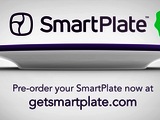Shared posts
Dropbox vient de lancer un nouvel outil de prise de notes
Cette technologie transforme l’écran tactile du smartphone en capteur biométrique
DGE : appel à projets "Consoconnect"
Paigo Smart Home Center, il sera le cerveau de votre maison connectée
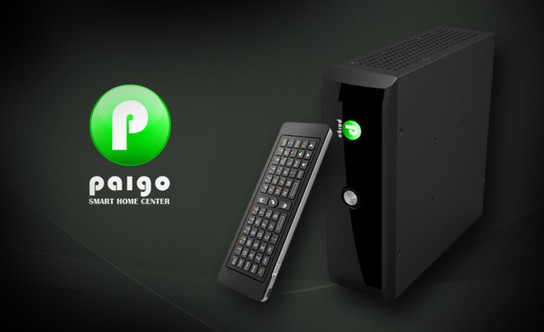
n »; gstring+= »n »; gstring+= »« ; document.write(gstring); }}Le Paigo Smart Home Center est un nouveau système smart home qui se connectera à tous les appareils « smart » de votre maison. Il sera comme le cerveau de votr... http://cedriclocqueneux-dev-maison_et_domotique.wpserveur.net/54633-paigo-smart-home-center-il-sera-le-cerveau-de-votre-maison-connectee/
Un trailer final pour Ex Machina
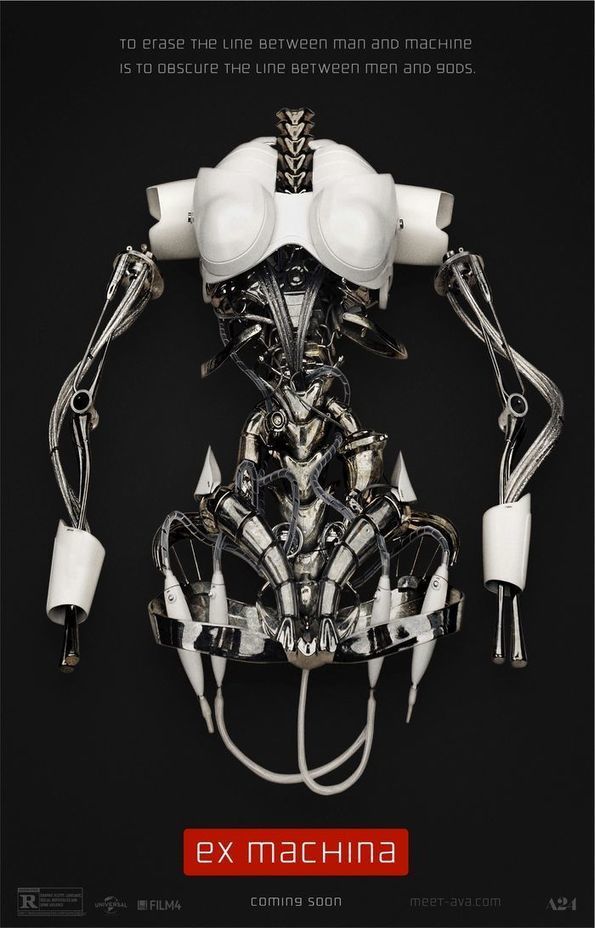
Les films sur l’intelligence artificielle, il y en a eu un sacré paquet. Et le prochain s’annonce très intéressant : il s’agit d’Ex Machina. Réalisé par Alex Garland, il réunit Oscar Isaac et Domhnall Gleeson.
5 exemples de formulation d insight consommateur
Voici comment trouver, formuler concevoir un insight consommateur. 5 exemples de formulation d'insight consommateur
Article5 exemples de formulation d insight consommateur publié surMarketing Professionnel e-magazine.
 Tags: consommateur, insight
Tags: consommateur, insightCopyright © Marketing Professionnel e-magazine [5 exemples de formulation d insight consommateur], tous droits réservés. 2015.
Objet Connecté de l'Année
Première édition du Label " Objet Connecté de l'Année " lancée par Editialis et le magazine E-commerce , en partenariat avec l'Institut d'études Opinion Way. Le jury se réunira pour étudier les candidatures (industriels français et étrangers ayant des produits connectés commercialisés en France) à travers 6 catégories (Sport, Santé, Loisirs, Maison, Multimédia, Sécurité). Le palmarès sera révélé lors de la soirée de remise de prix le 15 octobre 2015 à l'Espace Pierre Cardin.
Renseignements et Inscriptions sur le site avant le 19 juin : http://objet-connecte-de-lannee.fr/
Études marketing: les 6 tendances pour 2015
Google traduit les habitudes des consommateurs en infographie
Luttez contre l’obésité avec la gélule connectée
Jean-Philippe CunnietSanté
Une start-up israélienne développe actuellement une gélule connectée permettant de lutter contre le surpoids et l’obésité. Une future révolution dans les pays développés !
Une gélule coupe-faim
La société actuelle doit faire face à de plus en plus de cas d’obésité dans les pays riches. C’est dans ce contexte que la start-up israélienne MelCap Systems a décidé de développer un système coupe-faim destiné aux personnes désirant perdre du poids.
Ce système a été réalisé sous la forme d’une gélule à avaler. Une fois avalée, la gélule, munie d’une puce, doit être bien placée dans l’estomac. Cela est possible à l’aide d’un aimant adapté à ce mécanisme. Cette puce est ensuite contrôlée via son smartphone, Android ou IOS. Avec le smartphone et une télécommande sans fil il est possible d’envoyer un signal à la puce qui va émettre des vibrations et ce sont ces vibrations qui donneront un sentiment de satiété. Il est donc nécessaire de bien positionner la gélule au préalable dans l’estomac et plus précisément à proximité du nerf vague, qui relie l’estomac au cerveau. Lors des vibrations, le nerf enverra un signal au cerveau pour provoquer un sentiment de satiété.
La gélule est efficace durant 3 semaines (21 jours), lors du dernier jour elle est évacuée de manière naturelle. Il est donc possible d’en prendre une autre pour continuer le contrôle de son appétit et ainsi sa perte de poids.
Une nouvelle méthode pour perdre du poids
Il est vrai que pour lutter contre le surpoids, de nombreux patients se font opérer. Anneau gastrique, sleeve ou encore bypass, différentes opérations existent. Il faut encore avoir le courage nécessaire et le budget requis pour pouvoir se lancer dans de telles opérations. Il existe également de nombreux traitements ou régimes mais ils ne sont pas toujours efficaces, le mieux est encore de manger équilibré. C’est donc une alternative à ces « anciennes » méthodes que nous propose la start-up israélienne Melcap Systems, ni opération et moindre coût pour cette gélule connectée.

Cependant, il n’est pas rassurant d’ingérer une gélule contenant une puce et pour l’instant aucun test clinique n’a été effectué. La gélule est donc toujours en stade de développement mais beaucoup s’intéressent de près à ce nouveau concept médical connecté.
La start-up a également fait une demande de brevet pour sa gélule connectée qui pourrait améliorer la vie des personnes souffrant d’obésité. Les professionnels du médical ne se sont cependant pas exprimés sur le sujet.
Cet article Luttez contre l’obésité avec la gélule connectée a été posté sur OBJETCONNECTE.NET.
Codementor AMA — Ask questions and get answers from top expert developers
“
Hello!
Weiting from Codementor here! Super excited to be launching Codementor AMA here today!
Similar to Reddit's, Codementor AMA is open Q&A specifically for developers. We have a pretty strong lineup coming up, including Facebook React contributor, #1 Stack Overflow answerer, and the creator of the Ruby on Rails Tutorial.
Would love to hear your feedback!
”
– Weiting Liu
SaloonBox — Subscription DIY cocktail kit curated by top mixologists.
Jean-Philippe CunnietPernoveille
“
SaloonBox is a weekly subscription cocktail kit, which we plan to price at $25. The kit includes all the ingredients needed to make 2 cocktails at home. Each kit is curated by a well known bar manager or a mixologist.
What makes this service different from similar products is that we're not delivering full sized bottles. This makes it much more affordable and allows you to try lots more spirits and cocktails without breaking the bank.
The idea behind SaloonBox came from never having all the ingredients needed to make complicated cocktails and spending a fortune doing so. With SaloonBox, there's no need to run to the store to buy missing items or invest in full bottles that could end up laying around in your cabinet.
”
– Joe Spector
Faceshine — Determines your age, beauty, race, gender, and emotion
“
I always see these doppleganger weeks on Facebook. Saw this app and it reminded me of that.... (Side note-- I look a lot like @galifianakisz)
”
– Andrew Zusman
SmartPlate: Instantly track and analyze everything you eat.
Études marketing: les 6 tendances pour 2015
Concours d'innovation numérique
Jean-Philippe CunnietOn participe ? Catégorie "Commerce : Mieux comprendre le consommateur"
Le Concours d’Innovation Numérique est un dispositif de soutien à l’excellence dans le numérique financé par le Programme d’Investissements d’Avenir (PIA).
Baromètre des études : des budgets quasi-stables en 2015
Jean-Philippe CunnietEtudes
The Assumptions That Make Giving Tough Feedback Even Tougher
Jean-Philippe CunnietEtudes

What’s it like to be on the delivering end of a tough feedback conversation? In a recent conversation we had, a leader described his experience:
Q: What do you do to prepare when you have tough feedback to deliver to a subordinate?
A: I am super focused. I keep telling myself “be honest, and be totally direct.”
Q:Is it easy to be totally direct and honest with another person about their performance?
A: No, I want to tell them what they want to hear, but they need the truth. They need to clearly understand what’s really going on and how that affects me and everyone else in the team.
Q: Are you assuming that they don’t realize there’s a problem?
A: Of course! If they realized there was a problem then I would not have to straighten them out.
Q: Are you nervous? Do you find this difficult?
A: This is the absolute worst part of my job – I really have a hard time doing this. I can’t wait for it to be over.
Q: What’s your plan for the feedback session?
A: Shock and Awe! Get in the room, deliver my message, tell them what needs to change, and then get them out of my office!
When you consider how difficult it is to receive corrective feedback and then how hard it is for your boss to deliver it, you begin to see how truly challenging it is for both of you to have a meaningful and constructive conversation. A good place to start, we believe, is to examine some of the unwarranted assumptions our research shows many bosses have made that make the job even harder than need be.
Assumption 1: People don’t realize there is a problem
We asked a global sample of 3,875 people who’d received negative or redirecting feedback if they were surprised or had not known already about the problem that was raised. We were taken aback to discover that fully 74% indicated that they had known and were not surprised.
Very often, when we see someone performing poorly we say to ourselves, “If they only realized they had a problem they would do better.” But most of the time, that’s simply not so. A struggling employee may not realize how serious the problem is, but more likely, he or she is very much aware but hasn’t figured out how to do better. That means that simply pointing out the problem isn’t going to be all that helpful.
Assumption 2: It’s best to get it over quickly
Because both the person giving the feedback and the person receiving it are anxious, they both want to get it over quickly. That’s understandable: the human organism is wired to avoid pain. In practical terms, this usually means a meeting where the manager does a lot of talking and the subordinate remains silent. This might seem like the quickest and the kindest way to get things over with (on both sides), but it’s a terrible mistake.
In the global study we also asked respondents to rate how well managers “carefully listened to the other person’s point of view about a problem before giving them feedback” and how effective the feedback was that their manager gave them. The graph below shows how strong the relationship is between these two factors. Simply put, the less people felt their managers listened to them, the more likely they were to believe that their managers were not being honest and straightforward. One could look at this the other way too – that is, those who felt strongly that their managers listened to them rated them high on their ability to give honest feedback.

In this assessment we also asked people whether they preferred — or wished to avoid — receiving negative feedback. In previous research we had found that people generally want to receive negative feedback, which they see as essential to their development, although managers generally prefer not to deliver it. But in this case, we found that subordinates whose managers did not listen to their point of view before offering up feedback were significantly less interested in receiving negative feedback.
So if shock and awe is a bad way to go, what would work better? We suggest managers begin by putting themselves in the place of their subordinates (which shouldn’t be hard, since after all everyone in an organization is subordinate to someone). Ask yourself as you prepare for that tough feedback session if your boss were giving you negative feedback, how would you like to receive it?
Would you like him to blast you with an intense and brief barrage of words, or would you prefer to be asked questions about the situation? Say, for instance, your boss was pointing out some specific mistake you’d just made: Would you want your boss to have his say and get it all over with? Or would you prefer to be given the opportunity to explain the circumstances and reconstruct what you were thinking at the time? Then, would you rather be told how to correct the situation? Or would you prefer to offer your own ideas for how you might do things differently next time? If you did that, would you then hope that your boss would offer support, advice, and some needed resources to help you? And if he said, “I will check back with you next week to see how things are going,” would that help keep you on track?”
It is something of a paradox that we crave constructive feedback and the same time we don’t want to give it. Perhaps getting past that paradox is a matter of remembering, when it’s your turn to be the giver, that it’s really so much better to receive. We can all think of some feedback that has been a gift – advice that has helped us perform better and made us more successful. When it comes to giving the gift of feedback, it’s worth the effort of putting yourself in the receiver’s frame of mind.
les ateliers collaboratifs du Digital Society Forum : « Notre vie privée à l'heure du numérique » - 5 mai 2015 18:30 - 21:00
[Conférence] Avantage croisé de la mesure déclarative et des données de déplacement
A l’occasion du Printemps des Etudes 2015, Thierry Vallaud, Directeur de BVA Data Sciences et Fabien Guillemot, Directeur de l’Activité Transport, proposaient une conférence sur l’avantage croisé de la mesure déclarative et des données de déplacement. Cette présentation fait l’état des lieux des offres data de mobilité puis d’en présenter les avantages et les limites dans la compréhension des déplacements, en montrant comment les études de déplacements peuvent s’enrichir de ces données et combler certaines de leurs lacunes. Des points comme la représentativité, les redressements associés seront abordés. La conclusion sera une réflexion prospective sur la Mesure multisources de la mobilité® dans les prochaines années.
Mesure de la mobilité passive via smartphone : quelle valeur ?
- Comment utiliser les données de mobilité issues de la mesure passive via smartphone ? Quelle en est la représentativité ? Quels redressements faut-il effectuer ?
- Quelle exhaustivité, pour quelles conclusions ? Et pour quelles prédictions ?
- Quel complément cette mesure passive peut apporter aux études de déplacement, aux parcours clients ?
- Quel avenir pour ces mesures passives ?
Téléchargez ici la présentation de la conférence de BVA au Printemps des Etudes
The post [Conférence] Avantage croisé de la mesure déclarative et des données de déplacement appeared first on BVA lab.
Zensors transforme votre smartphone ou caméra Wi-Fi en capteur d'environnement - Abavala !!!
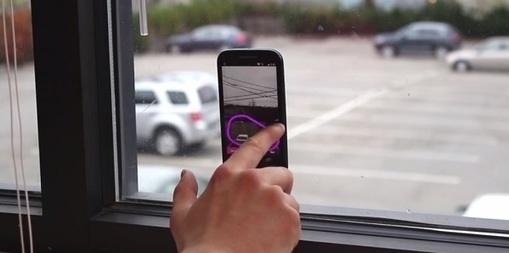
Zensors est système automatique dont le but est de scruter en continu votre environnent afin de vous remonter des alertes si un événement précis survient. Pour arriver à ses fins, il utilise votre smartphone ou toute caméra IP en tant que capteur. Cette caméra est transformée en capteur par une manipulation des plus simple: il suffit d’installer une application sur votre téléphone Android ou de connecter la caméra IP à un serveur central, de lui indiquer ce qu’elle doit voir et comment elle doit alerter. Elle peut alors surveiller certains paramètres de votre maison ou de votre entreprise. C’est peut être encore là une bonne idée de recyclage de vieux téléphones ou pour apporter de l’intelligence utile à une caméra Wi-Fi classique.
Walmart calcule l'activité des clients grâce à un caddie connecté
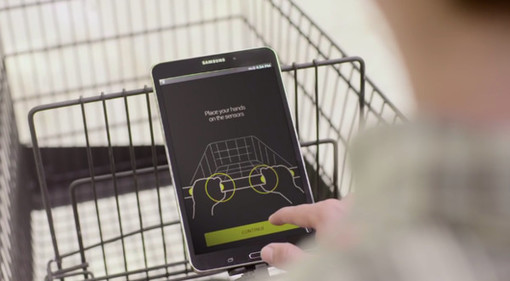
Au Costa Rica, Walmart s’est associé à Tribu DDB pour proposer une opération de quantified self au sein même de ses supermarchés. Des caddies connectés indiquent à chacun son niveau d’activité physique durant ses courses.
Walmart est très impliqué dans les nouvelles technologiques, et sa tentative de concurrencer le Chromecast n’en est pas le seul exemple. Ainsi au Costa Rica, et pour promouvoir un mode de vie plus sain auprès du plus grand nombre, Walmart introduit du quantified self au sein de ses supermarchés. En posant ses deux mains sur la barre d’un caddie connecté, équipé de détecteurs de pulsations cardiaques.
Apporter une approche scientifique d'un référentiel de la mobilite

Thierry Valllaud, Directeur BVA Data Sciences, et Fabien Guillemot, Directeur d’activité BVA Services, se sont associés le temps d...
Ink — Rock solid freelance contracts in minutes
Jean-Philippe CunnietUne sorte de captain contrat US ?
“
Hey there! I'm Andrew, one of the co-founders of Krit. At Krit we're building a suite of software tools to help freelancers streamline their business.
Today we're excited to be launching Ink, the first tool in our suite. Ink is an easier, better way to create a rock solid freelance contract in just minutes.
We're psyched to get to share this with the Product Hunt community, so we're also giving all hunters a free contract pack, just use the code PRODUCTHUNT at checkout.
If you have any questions or feedback we'd love to hear it! :)
”
– Andrew Askins
Word Camera — Use a neural network to translate photos to text
“
"word.camera uses convolutional neural networks (via Clarifai) to extract concept words from images. It expands those initial words (mostly nouns) into sentences and paragraphs using a lexical relationship database (ConceptNet) and a flexible template system."
”
– Chris Messina ☠
Listening table makes sense of conversations that happen around it

Technology is changing the way organizations go about even the most basic, everyday tasks. Not long ago we featured the Equil Smartmarker, a device which retrofits whiteboards with the capability to stream, share and save notes as digital files. A new design concept, called the Listening Table, now promises to make meetings even more streamlined.
The table, designed by New York Times Research and Development Labs, captures the conversation of those sat around it. It is fitted with a central array of microphones connected to thermal cameras, which are able not only able to accurately pick up everything that is said, but also to identify who said what.
While the capacity for accurate voice recording is certainly useful, as an innovation it does little to advance on the trusty old Dictaphone. What truly sets the Listening Table apart is its ability to discern important moments in a conversation, and to remove filler. The table incorporates capacitive strips which, when touched, drop a marker in the recorded conversation. When the recording is reviewed, participants can see a high-level summary of the meeting, outlining the topics covered, the markers dropped and the available recordings.
The designers created the table with a straightforward aesthetic that clearly communicates its function. The clean simplicity of the design, the prominence of its recording equipment and a basic on/off flick switch are all conscious features, intended to distance the Listening Table from more surreptitious recording devices, which are an increasing concern in this era of state snooping and eavesdropping TVs.
At present the design is only conceptual, and is unlikely to be hitting meeting rooms soon, but the idea of sensors that can measure context as well as content is incredibly exciting, and will become more so as the Internet of Things delivers ever-more connected devices into our homes.
Website: www.nytlabs.com/projects/table.html
Contact: @nytlabs
Le mag de la maison intelligente » Bitbite, le coach alimentaire nomade
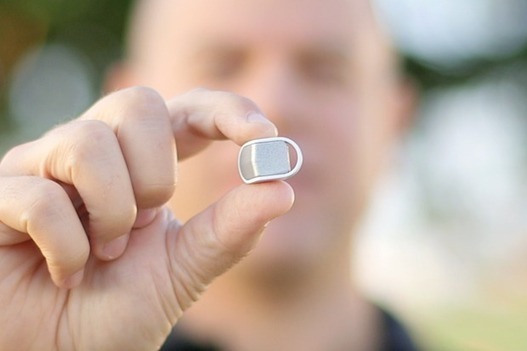
Une des clef d’une bonne santé, c’est bien sur une alimentation saine. Plusieurs fabricants se penchent sur le sujet et proposent des objets connectés dans le domaine de l’alimentaire pour aider l’utilisateur à contrôler ce qu’il y a dans son assiette. On peut penser à la fourchette connectée (Hapifork pour la plus connue), au verre connecté Vessyl ou au capteur d’hydratation the Hug, ou encore à la boite de conservation Neo dont nous avons parlé il y a peu sur le blog.



